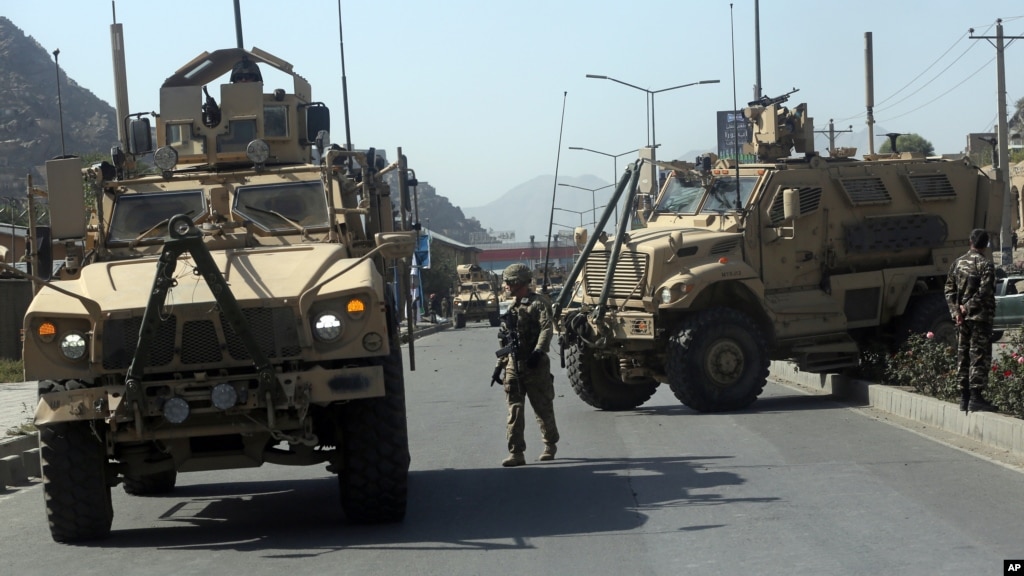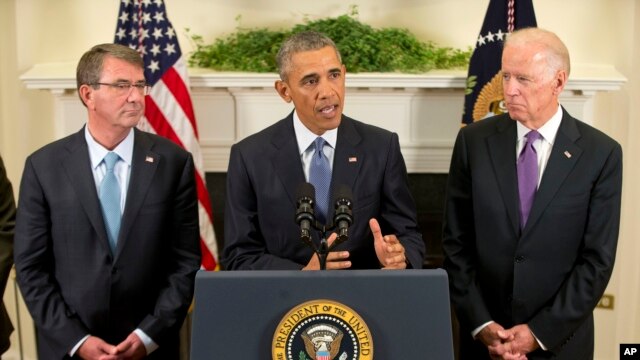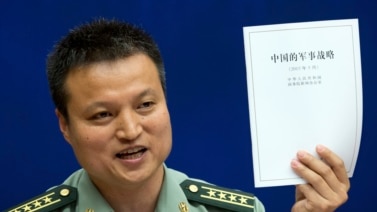
President Barack Obama announced on Thursday that he will slow the planned withdrawal of United States forces from Afghanistan. The announcement came a day after the president said he would send troops to Cameroon to help in the fight against Boko Haram militants. Under Mr. Obama’s leadership, the U.S. has led an international coalition against the Islamic State group for more than a year. Islamic State forces control parts of both Syria and Iraq.
Mr. Obama was elected in 2008 partly because he promised to bring American troops home and end the long wars in Afghanistan and Iraq. Many Americans had grown tired of the wars and wanted their sons and daughters who were fighting them to come home. On Thursday, the president said he knows this is still what the American people want.
“I know that many of you have grown weary of this conflict. As you all are well aware, I do not support the idea of endless war.”

Mr. Obama has said many times during his two terms that he wants American troops removed from conflict areas by the time he leaves office. In May of 2014, he spoke to soldiers at the U.S. Military Academy at West Point. He told them that most of the American troops who were then in Afghanistan would be home by the time he left office in January 2017.
"Afghan forces are still not as strong as they need to be"
But Afghan troops have not been able to provide security for the country. On Thursday, President Obama said “Afghan forces are still not as strong as they need to be.” Afghanistan’s former Taliban rulers and their supporters continue to threaten security. The Taliban has surprised U.S. officials with its strength and ability to control rural areas and launch deadly attacks on cities.
“The bottom line is in key areas of the country, the security situation is still very fragile, and in some places there’s risk of deterioration.”
So Mr. Obama announced this week that he has decided to keep the number of American troops in Afghanistan at 9,800 through most of 2016. He plans to reduce that number to 5,500 by the time he leaves office in early 2017. At one time, there were 100,000 American troops in the country. Two thousand, two hundred Americans have died in the fighting.
Officials say the president made his decision after months of talks with U.S. military leaders and Afghan officials. Many officials were worried when Afghan forces lost control of the northern city of Kunduz for a short time to Taliban militants.
U.S. sending troops to Cameroon
Also this week, President Obama ordered the military to send about 300 American troops to the central African nation of Cameroon. He announced the deployment in a letter sent to the heads of the U.S. Senate and House of Representatives. Mr. Obama wrote that about 90 U.S. troops began deploying to Cameroon on Monday. They will use unmanned aircraft to find Boko Haram militants.
A U.S. defense official said that Cameroon invited the troops as part of a larger international effort to stop the spread of violent extremists. The official said the need for international action has, in the official’s words, become “more urgent as Boko Haram and other organizations ramped up their violent activities.” Boko Haram has been active in northern Cameroon. The area is near their main base in northeastern Nigeria. The group has killed hundreds of civilians in Cameroon and at least 10,000 in Nigeria over the past few years.
An American defense official said it is not known how long the troops would be in Cameroon. The official said they would stay “as long as (their) presence is requested.”
I’m Christopher Jones-Cruise.
This story was based on reports from VOA's Richard Green, Mike Richman, Dan Joseph, Carla Babb at The Pentagon, Ayaz Gul in Islamabad, Aru Pande from the White House. Christopher Jones-Cruise adapted it for Learning English. George Grow was the editor.
Words in The News
bottom line – expression conclusion; final decision
key – adj. extremely important
fragile – adj. not strong
deterioration – n. the act or process of becoming worse
core – v. describing the most important or basic part of something
adjustment – n. a change, often small, that improves something or makes it work better
ramp up – expression to increase the size or amount of something; to increase the volume, amount, or rate of something
presence – n. the fact of being in a particular place
We want to hear from you. Write to us in the comments section.





